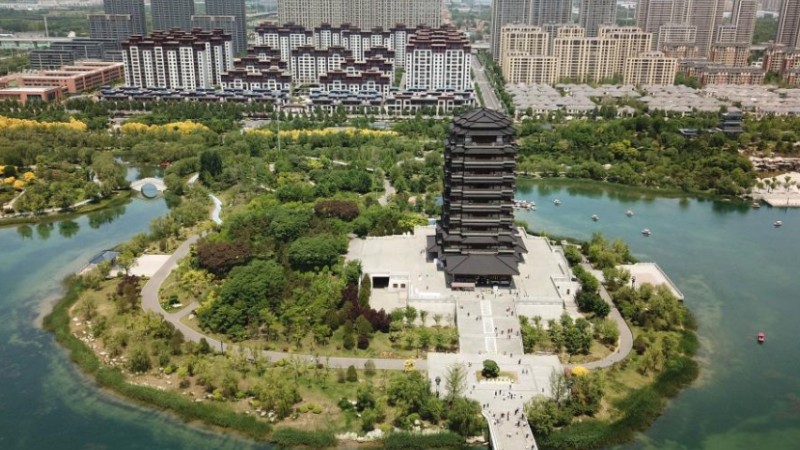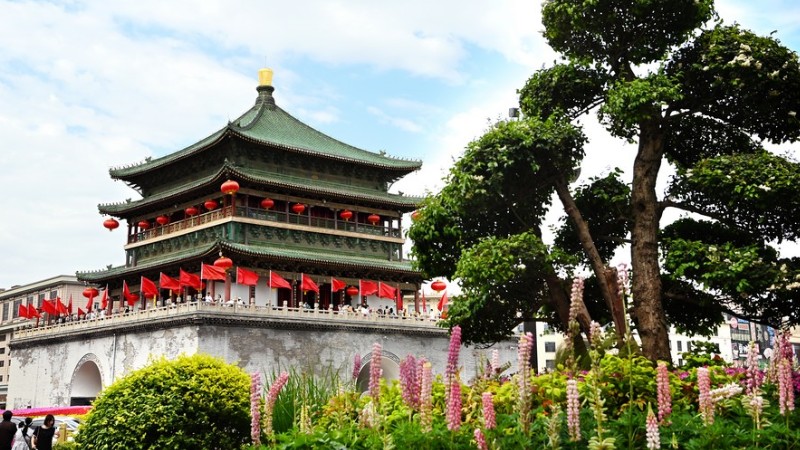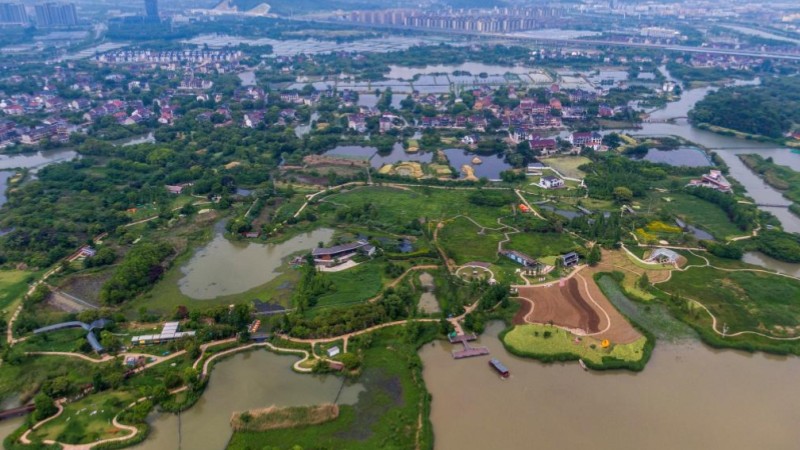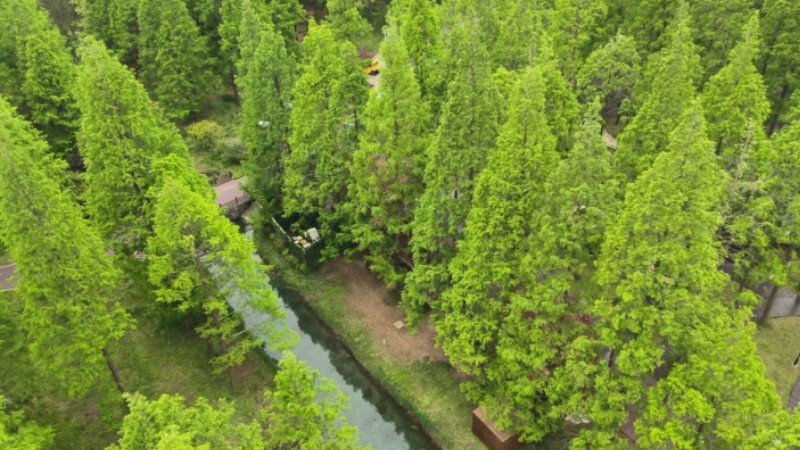"City of future" offers glimpse of Chinese modernization
XIONG'AN, Hebei, May 11 (Xinhua) -- Six years on, Xiong'an New Area, China's "city of the future," is offering a glimpse of the Chinese vision of modernity.
During a meeting on promoting Xiong'an's high-standard and high-quality construction and development on Wednesday, President Xi Jinping said within only six years, Xiong'an New Area has started from scratch and developed from a blueprint to reality, with a high-level modern city now sprouting up, which is undoubtedly a miracle.
In April 2017, China announced a plan to establish Xiong'an New Area, located about 100 km away from Beijing. The creation of Xiong'an is regarded as "a strategy that will have lasting importance for the millennium to come and a significant national event."
In terms of the coordinated development of the Beijing-Tianjin-Hebei region, Xiong'an aims to become a significant part of the world-class Beijing-Tianjin-Hebei city cluster and plans to take over Beijing's non-capital functions and provide a Chinese solution to "big city malaise," such as overcrowding, pollution and traffic congestion.
China's leadership has pledged to build Xiong'an into an innovative, green, smart, and world-class city with blue skies, fresh air, and clean water, in line with the country's high-quality development path.
During Wednesday's inspection tour of Xiong'an, Xi stressed that the development of Xiong'an New Area has entered a phase when the same importance must be attached to both its large-scale construction and its purpose to relieve Beijing of functions non-essential to its role as the national capital.
More efforts should be made in constructing a multidimensional comprehensive transport network, in making full use of underground space and in building a future city without "urban problems," so as to turn the high-standard blueprint into high-quality development of a city, Xi said during the inspection.
Over the past six years, Xiong'an has completed a total investment of over 540 billion yuan (about 78.1 billion U.S. dollars) with a developed area of approximately 120 square km and over 3,500 buildings constructed.
China's centrally-administered state-owned enterprises (SOEs) have set up more than 140 subsidiaries and branches in the area. Construction of headquarter buildings of big SOEs like Sinochem Holdings, China Satellite Network Group and China Huaneng Group have entered different phases. Over 3,000 enterprises registered in Xiong'an have a background of investment from Beijing.
On Wednesday, Xi emphasized the importance of fully implementing the strategy of innovation-driven development.
Xiong'an is developing high-end industries and building itself into an innovation hub as more high-level talents move in.
The Chinese Academy of Sciences has set up its Xiong'an innovation and research institute. Tao Ye joined the institute after years of overseas study in 2022 and is engaged in the research of microwave photonics and integrated optoelectronics.
"Microwave photonics and integrated optoelectronics are a big trend for future technological advancement and will have a wide range of application scenarios. Developing such technologies is in line with the Xiong'an development strategy," Tao said.
In his eyes, Xiong'an provides fertile ground for transforming scientific research results and he is proud of his participation in the construction of this "city of the future."
"I'm glad to see that our scientific research results are contributing to the construction of this smart and future city and this also offers a great motivation for our work," he said.
Xiong'an has also built itself into a magnet for enterprises, and the huge confidence in the area's future prospects has attracted a large number of businesses to Xiong'an.
Eyecool, an artificial intelligence (AI) firm hailing from Zhongguancun, the country's first national high-tech industrial development zone in Beijing, established a presence in Xiong'an and headquartered itself in the area in September 2018.
Li Qiang, general manager of the company's Xiong'an department, said Xiong'an was designed to be a city of innovation from the very start and that is why they settled there. "As an AI startup, Eyecool considers it a valuable asset to have been able to witness the area's growth since its inception."
Li described Xiong'an as a testing ground for technological innovation, with increasingly more applications in blockchains, AI and digital roads.
Xiong'an is building a digital and smart city. Autonomous buses are undergoing road tests in the Rongdong area of Xiong'an. The Rongdong area is now home to 153 km of "digital roads," where sensors on over 6,000 lamp poles can support autonomous driving and also monitor traffic to help reduce traffic jams, said Kou Tianhao with Yuexiang Xiong'an, a company that focuses on smart transport and autonomous driving.
In building a green city to promote harmony between humanity and nature, Xiong'an has also attached great importance to ecological protection.
Since launching a massive afforestation project in 2017, Xiong'an has afforested over 31,000 hectares of land, increasing its forest coverage rate from 11 percent to 34 percent. Local residents may travel no further than 300 meters from their homes to reach a park, and will get to a tree belt within 1 km and a forest within 3 km.
Thanks to the afforestation program, the local sky is bluer, the water clearer, and the natural environment significantly improved, while some small animals have reappeared after an absence of many years, said Qiu Xiangguo, a villager in Rongcheng County, Xiong'an New Area.
The Baiyangdian Lake, the largest wetland ecosystem in northern China, is located in Xiong'an. After the establishment of the new area, the water quality in Baiyangdian has improved from below Level V, the lowest of China's five-tier water assessment system, to Level III. The species of wild birds in the lake area has increased to 252, which is 46 more than six years ago.
Photos
Related Stories
Copyright © 2023 People's Daily Online. All Rights Reserved.









